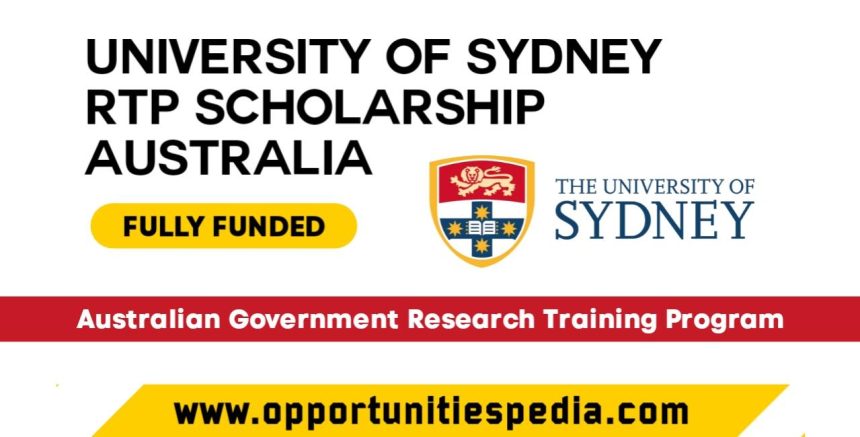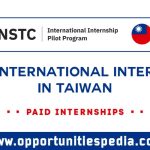The University of Sydney RTP Scholarship 2025-2026 offers an outstanding opportunity for both domestic and international students to pursue a fully funded Higher Degree by Research (HDR) in Australia. Funded by the Australian Government and administered by the University of Sydney, the Research Training Program (RTP) supports exceptional scholars by covering tuition fees and providing generous stipends to support their academic journey.
- University of Sydney RTP Scholarships 2025 Details
- Benefits of the University of Sydney RTP Scholarship 2025
- Types of RTP and Equivalent Scholarships
- Eligibility Criteria for the University of Sydney RTP Scholarship 2025:
- Required Documents:
- Application Timeline 2025-2026
- How to Apply for the Sydney RTP Scholarship 2025?
This prestigious scholarship is designed for highly motivated students aiming to undertake a Master’s by Research or a PhD. The RTP scholarship ensures that students can fully focus on their research without the burden of financial stress, making it one of the most attractive research funding options in Australia.
The RTP Scholarship 2025 at the University of Sydney provides extensive support, including a yearly stipend, full tuition fee coverage, relocation allowances, and health insurance for international students. With multiple award rounds and a competitive selection process, the RTP scholarship remains a top choice for aspiring researchers globally. You can also check out the MTCP Scholarships in Malaysia 2025 (Fully Funded)
University of Sydney RTP Scholarships 2025 Details
- Host Country: Australia
- Host Institution: University of Sydney
- Study Level: Master’s by Research & PhD
- Duration: Up to 3.5 years for PhD
- Eligibility: Domestic & International Students
Benefits of the University of Sydney RTP Scholarship 2025
- Annual Stipend: AUD $41,753 (2025 rate)
- Full Tuition Fee Coverage: Up to 14 research periods
- Relocation Allowance: Financial support to move to Sydney
- Thesis Allowance: Cost reimbursement for thesis production
- Health Insurance: Overseas Student Health Cover (OSHC) for international students
- Research Resources: Full access to university labs and libraries
Check Qatar University Scholarships 2025-2026 (Fully Funded)
Types of RTP and Equivalent Scholarships
- RTP Stipend Scholarship (Domestic & International)
- RTP Fee Offset (International only)
- University of Sydney International Stipend Scholarship (USYDIS)
- University of Sydney Tuition Fee Scholarship (International)
- University of Sydney Postgraduate Awards (UPA – Domestic)
All scholarships are competitively awarded and based on academic excellence and research potential.
Eligibility Criteria for the University of Sydney RTP Scholarship 2025:
- Everyone from any nationality can apply.
- Applicants must be commencing or currently enrolled in a University of Sydney HDR program.
- Must have an excellent academic record and prior research experience.
- Meet the University’s English language requirements.
- Applicants must submit a separate scholarship application form alongside admission.
Required Documents:
- Completed online application form
- Academic transcripts and degree certificates
- Research proposal
- Curriculum Vitae (CV)
- Proof of English language proficiency
- Letters of recommendation (2 referees)
- Copy of passport (for international students)
Check University of Malta Scholarships 2025-2026 (Study in Europe)
Application Timeline 2025-2026
International Students
| Research Period | Submission Deadline | Results |
|---|---|---|
| Period 1 & 2, 2025 | 13 September 2024 | 22 November 2024 |
| Period 3 & 4, 2025 | 17 December 2024 | 19 March 2025 |
| Period 1 & 2, 2026 | 12 September 2025 | 2 December 2025 |
| Period 3 & 4, 2026 | 19 December 2025 | March 2026 (Estimated) |
Domestic Students
| Research Period | Submission Deadline | Results |
|---|---|---|
| Period 1 & 2, 2025 | 23 October 2024 | 13 December 2024 |
| Period 3 & 4, 2025 | 5 May 2025 | 24 June 2025 |
| Period 1 & 2, 2026 | 10 October 2025 | 9 January 2026 |
How to Apply for the Sydney RTP Scholarship 2025?
Follow the steps below to apply for the RTP and equivalent university scholarships:
- Apply for HDR Admission: Start by submitting your application for a Master’s by Research or PhD program through the Sydney Courses Portal.
- Complete Scholarship Form: Download and fill out the RTP or USYDIS scholarship form (available on the university website).
- Submit Required Documents: Ensure all documents are uploaded before the submission deadline.
- Wait for Notification: Successful candidates will be notified within the timeline specified for each research period.












